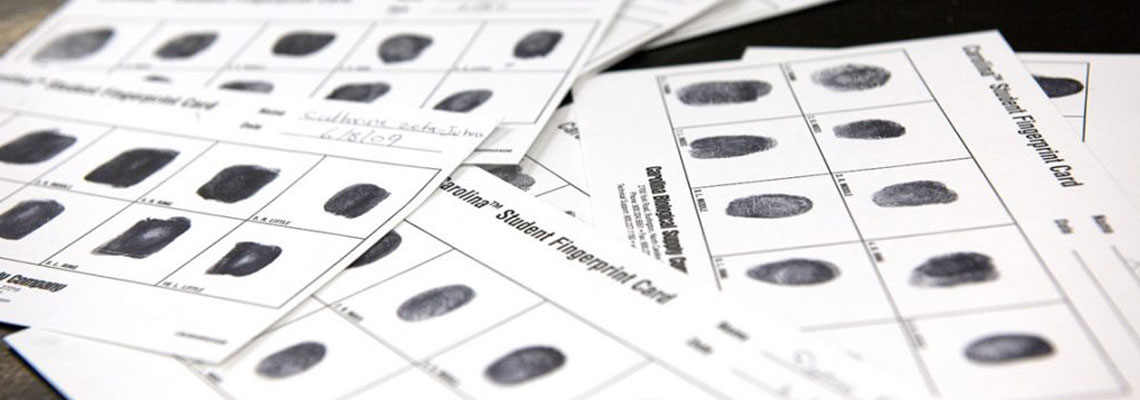
Program Coordinator: Professor Michelle Ronda, mronda@bmcc.cuny.edu
In the Criminal Justice Program (CRJ), you will find yourself in an academically stimulating environment, surrounded by highly-committed and trained faculty. You will be able to increase your understanding of the complex social, economic, and political issues facing our society. Your courses will provide a solid foundation in criminal justice studies and promote critical thinking of the theories of and social responses to crime.
CUNY Justice Academy
The CUNY Justice Academy is a partnership program that enables students who complete the Criminal Justice A.A. Degree at BMCC to transfer to John Jay and continue their studies towards a B.A. degree. BMCC students who complete the requirements—including a GPA of 2.0 or above—will be granted an automatic transfer into John Jay. The first 60 credits of your college education are taken at BMCC, and your final 60 credits at the senior college.
Transfer Options
In addition to transferring to John Jay, BMCC has articulation agreements with several other four year colleges such as Alfred University for the B.A. in Criminal Justice Studies, and Metropolitan College of New York for the B.A. in Emergency Management and Business Continuity. Our alumni have also transferred to other CUNY colleges, Columbia University, New York University, and many other institutions. In addition, some students proceed to full-time employment upon completing the Associate’s Degree at BMCC.
Explore Careers
BMCC is committed to students’ long-term success and will help you explore professional opportunities. Undecided? No problem. The college offers Career Coach for salary and employment information, job postings and a self-discovery assessment to help students find their academic and career paths. Visit Career Express to make an appointment with an advisor, search for jobs or sign-up for professional development activities with the Center for Career Development. Students can also visit the Office of Internships and Experiential Learning to gain real world experience in preparation for a four-year degree and beyond. These opportunities are available to help BMCC students build a foundation for future success.
These suggested careers may require bachelor's or higher degrees.
Make an appointment at the Academic Advisement and Transfer Center.
Required Common Core
| English Composition | 6 |
| Mathematical and Quantitative Reasoning1,2 | 3 |
| Life and Physical Sciences2 | 3 |
| TOTAL REQUIRED COMMON CORE | 12 |
Flexible Core3
| Creative Expression | 6 |
| Individual and Society | 3 |
| Scientific World2 | 3 |
| U.S. Experience in Its Diversity | 3 |
| World Cultures and Global Issues | 3 |
| TOTAL FLEXIBLE COMMON CORE | 18 |
| TOTAL COMMON CORE | 30 |
Curriculum Requirements
- Criminal Justice is the field that studies formal social control. This course covers the processing of crime by agents of formal control (police, courts, and institutional corrections). The general focus is on understanding the complex interactions of structures and agents in the system. Of particular concern are discretion and diversity in law enforcement, due process in criminal courts, and the punishment-rehabilitation dichotomy in corrections. The ultimate goal is to provide a critical foundation that prepares students for the challenges of a career in criminal justice.
- This is an introductory and foundational course in the study of crime and justice. It is designed to introduce students to the various historical and contemporary theories and empirical research used to understand deviant and criminal behavior. This course takes a critical approach to the study of the definition and measurement of crime, as well as applications of these theories to practice and in policy. Offending and victimization, as these relate to specific crime types (i.e., white collar crime, violent crime, sex crime, drug related crimes, etc.) will be explored. Prerequisite: SOC 100
- This course provides a historical overview of the relationship of the states of the Bill of Rights, and how the Supreme Court has interpreted the powers of the federal government. The effect of the due process clause of the Fourteenth Amendment on the application of the Bill of Rights to the states is examined through a study of the leading Supreme Court decisions related to criminal justice. Topics include characteristics and powers of the three branches of government, the principles governing the operation of the Bill of Rights, and the variables affecting the formulation of judicial policy. Prerequisite: POL 100
- This course is intended to broaden the studenta??s understanding of the origins and development of law enforcement agencies in the United States. Moreover, the course will examine the complex role of the police in a democratic society in the criminal justice system. An emphasis will be placed on recruitment, the training process and the importance of diversity, particularly among larger police departments in the U.S. The course will also examine contemporary legal issues and modern strategies such as community, evidence-based, intelligence-led and predictive policing. Prerequisite: CRJ 101
- This course examines the history of criminal punishment in Western society, emphasizing the United States. The course highlights social forces (political, religious, economic, and technological) shaping punishment; reviews common theories (deterrence, retribution, rehabilitation, incapacitation, and restoration) and examines how theory relates to policy. The course takes a critical approach to correctional systems and policies by considering disparities and structural inequalities. Empirical evidence is used to examine contemporary crises of punishment (i.e., mass incarceration, school-to-prison pipeline) as well as prison culture, staffing, privatization, and prisoner civil rights. Alternatives to traditional punishment, especially restorative justice models, are explored. Prerequisite: CRJ 101
- This course takes a critical approach to the study of crime and justice in urban settings. Course materials examine contemporary crime-related issues that affect urban communities within a historical and sociological context. The course highlights the intersections of deviant behavior and the criminal justice system within the structures of class, race, gender, and power inequalities. Topics explored may include racial profiling, juvenile delinquency, media representations of crime, policing, the war on drugs, and prisoner re-entry.
Prerequisite: CRJ 101 and CRJ 102 - This course is intended primarily for those students who intend to pursue professional careers in fields such as economics, finance, management, and administration. It is also open to highly motivated students in other areas. Topics include: national income and national product; saving, consumption, investment, the multiplier theory, fiscal policy, inflation, employment and business cycles. The student will also be acquainted with money, banking, and central bank monetary policies, as well as some of the more significant theories of international trade and economic development.
Footnotes
Please note, these requirements are effective the 2016-2017 catalog year. Please check your DegreeWorks account for your specific degree requirements as when you began at BMCC will determine your program requirements.
- Consult with an advisor on which courses to take to satisfy these areas.
- These areas can be satisfied by taking a STEM variant.
- No more than two courses in any discipline or interdisciplinary field can be used to satisfy Flexible Core requirements.



